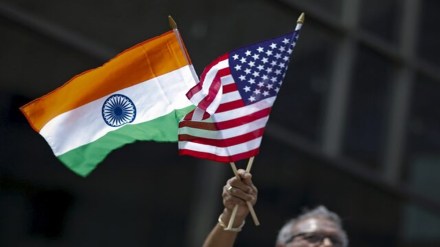The US court order ruling reciprocal tariffs imposed by President Donald Trump as illegal has not led to any jubilation among exporters in the country, but experts reckon this might stand Indian negotiators in good stead, while the two countries are hammering out a Bilateral Trade Agreement (BTA).
According to the President of Federation of Indian Export Organisations (FIEO) S C Ralhan the orders of the courts take time to implement. Also, how the Trump administration will respond to it remains to be seen.
“It will take 2-3 days for clarity to emerge but it looks like a good sign for India” he added. After the US Court of International Trade ruled that former President Donald Trump’s “Liberation Day” tariffs were illegal under the International Emergency Economic Powers Act (IEEPA), the Trump administration filed an appeal against the order.
The appeal process can go up to the Supreme Court and in the meantime the US can continue to collect additional 10% baseline duties and after July 9 full reciprocal tariffs.
The court had said that the law that Trump cited to justify the tariffs, did not give him the power to impose the sweeping import taxes, it said.
Some experts feel that the process of appeal should not take long and things would be clearer in a month or so.
“With the Trump tariffs standing on shaky legal ground, India must pause and reassess its negotiation strategy before committing to a pact that could disproportionately favour US interests,” founder of Global Trade Research Initiative (GTRI) Ajay Srivastava.
The US court orders also create problems for negotiators that are working on trade agreements with the US. “Now negotiators with the US are working with high reciprocal tariffs in mind and seeking to reduce or eliminate them. If reciprocal tariffs go then the US base tariff for them for negotiations would be the Most Favoured Nation (MFN) tariff of 2.5%,” director general and CEO of FIEO Ajay Sahai said.
While the Trump administration has postponed reimposing the country-specific tariffs, it is actively pressuring countries to make concessions, including unilateral tariff cuts and expanded purchases of US goods, to avoid these tariffs.
Under this pressure, the United Kingdom signed a bilateral trade agreement on May 8, 2025, cutting tariffs on over 2,500 U.S. products, removing duty on the U.S. ethanol, and increasing Boeing purchases — while the U.S. offered tariff cuts on fewer than 50 U.K. products, most only reduced to the baseline 10% (not zero).
“India is reportedly preparing to eliminate tariffs on thousands of products including automobiles, and agriculture, open its government procurement market, weaken intellectual property and data laws to benefit U.S. tech and pharma companies, and allow more foreign market access, including approving Starlink’s satellite internet — mostly as one-sided concessions, Srivastava said
“But such a deal lacks balance and fairness. India should resist any agreement shaped by threats or based on unlawful measures,” he added.
